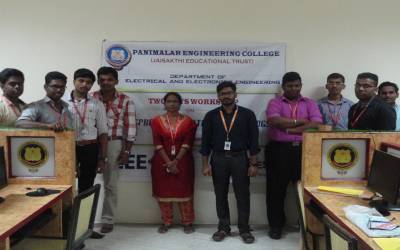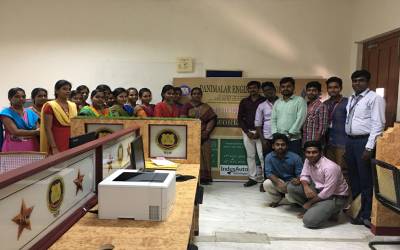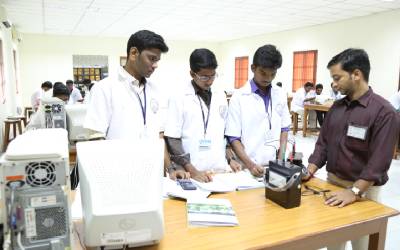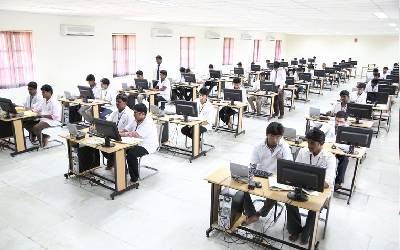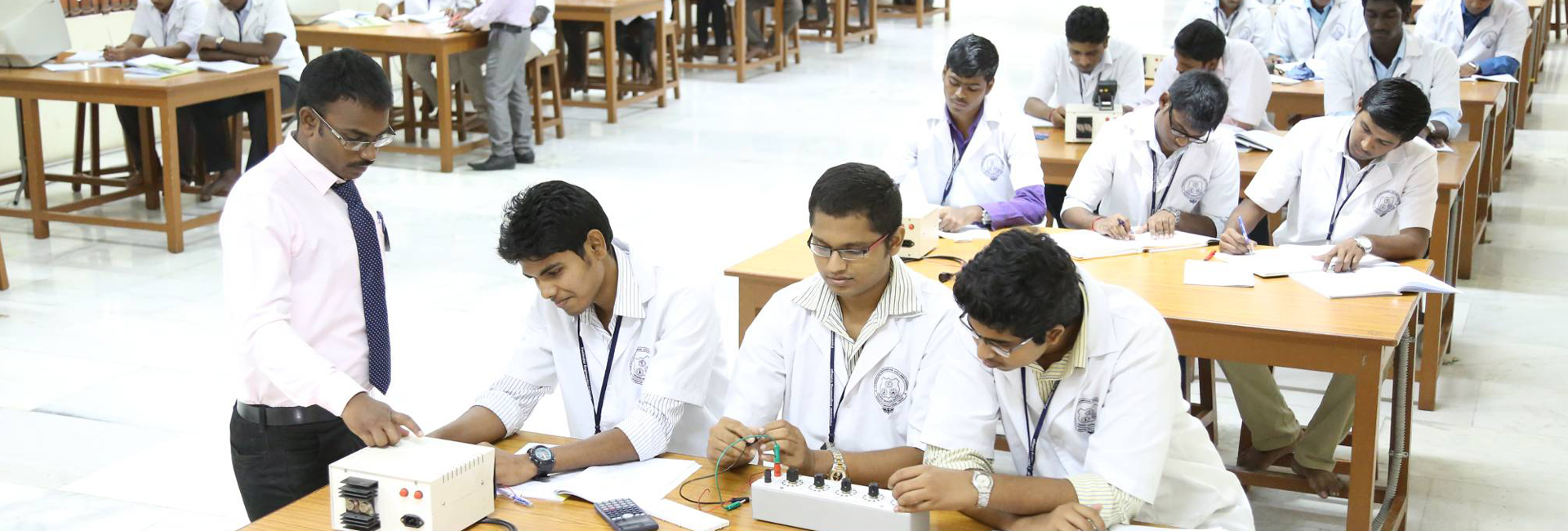
About the Department
Vision and Mission
PEO,PO’S,PSO’S
HOD Profile
Faculty List
Milestones
Professional Society
Clubs
Events
Course Material
Newsletter & Magazines
Survey Forms
Department Library
About the Department of Electrical and Electronics Engineering
Established in 2001 with an initial intake of 60 students, the Department of Electrical and Electronics Engineering has grown steadily, increasing its intake to 180 by 2015, reflecting its rising demand and academic strength. The department is accredited by the National Board of Accreditation (NBA), with multiple cycles of accreditation over the years notably in 2008, 2014, 2019, and 2022 attesting to its commitment to quality education.
Staffed with highly qualified faculty, many of whom hold or are pursuing PhDs, the department emphasizes academic rigor and research excellence. Faculty members are actively involved in consultancy and research projects, ensuring that students benefit from up-to-date knowledge and hands-on experience.
Students of the department consistently excel academically and have distinguished themselves in national and international hackathons and contests. In addition to technical skills, the department places a strong focus on soft skills, personality development, and placement training, preparing students comprehensively for successful careers.
The department boasts strong placement records, with leading recruiters such as Ashok Leyland, Tech Mahindra, Voltech, Schneider, Foxconn, Uno Minda, TCS, Infosys, Wipro, and CTS. Many graduates also pursue higher studies at prestigious institutions in India and abroad.
Students actively participate in national-level symposiums, conferences, and product development competitions, showcasing their innovation and leadership. Practical exposure is further enhanced through industrial visits, in-plant training, and involvement in real-world research and industrial projects.
The students of the department have consistently performed well in academics with 2 gold medals and 76 University ranks so far. In addition to academics, the students career is enhanced through training in soft skills, personality development and placement training classes.



Vision and Mission

VISION
To be a centre of excellence in Electrical and Electronics Engineering education, fostering innovation and technical expertise to meet the evolving needs of society with credibility, integrity, and ethical values.
MISSION
- M1: To achieve excellence in curricular and co-curricular activities by providing quality education through dedicated faculty and effective teaching methods.
- M2: To equip students with technical competence and practical skills through research-driven learning and industry-focused training.
- M3:To nurture dedicated Electrical and Electronics Engineers who take pride in serving their profession and society with responsibility and integrity.
Programme Educational Objectives(PEOs)
Programme Outcomes (POs)
Programme Specific Outcomes (PSOs)
HOD Profile

Dr. S. Selvi, M.E, Ph.D
Professor and Head of the Department of Electrical and Electroncis Engineeirg
She received Bachelor in Engineering in Electrical and Electronics Engineering from College of Engineering, Guindy, Anna University. She obtained her Master of Engineering in Power Electronics and Drives and Doctorate Degree from Sathyabama University, Chennai.
She has around 30years of teaching experience. Her area of interest are lightning and Industrial Drives. She has published several research articles in National /International Conferences and Journals.
S. Selvi has secured Rs. 15 lakhs in research funding, including a grant from the All India Council for Technical Education (AICTE). She is currently collaborating with Larsen & Toubro on industry-specific projects. Additionally, she has received support from the Tamil Nadu State Council for Science and Technology (TNSCST). Her work is recognized for its potential to drive innovation in her field. These resources are helping her advance her research and industry collaboration.
Faculty List
| S.No. | Name of the Faculty | Designation |
|
1 |
Dr. S.SELVI |
Professor & HOD |
|
2 |
Dr. D. SILAS STEPHEN |
Professor |
|
3 |
Dr.P.S.RAMAPRABA |
Professor |
|
4 |
Dr.R.DHARMAPRAKASH |
Professor |
|
5 |
Dr. N. MANOJ KUMAR |
Professor |
|
6 |
Dr.B. MUTHURAJ |
Professor |
|
7 |
Dr.S.DEEPA |
Professor |
|
8 |
Dr. A.SIVAKUMAR |
Professor |
|
9 |
Dr .P.HARI RAMAKRISHNAN |
Professor |
|
10 |
Dr.LAVANYA DHANESH |
Professor |
|
11 |
Dr.G.MERLIN SUBA |
Associate Professor |
|
12 |
Dr.C.T.MANIKANDAN |
Associate Professor |
|
13 |
Dr.N.KARTHIKEYAN |
Associate Professor |
|
14 |
Mr.M.PADMARASAN |
Associate Professor |
|
15 |
Mr.S.SUNDARAMOORTHI |
Associate Professor |
|
16 |
Mrs.S.LAKSHMI |
Associate Professor |
|
17 |
Mr .P.SANTHOSH |
Associate Professor |
|
18 |
Dr .G.PONKUMAR |
Assistant Professor |
|
19 |
Dr. D.SHOBANA |
Assistant Professor |
|
20 |
Mrs. A.KALAIMANI |
Assistant Professor |
|
21 |
Mr. R.SAKTHIVEL |
Assistant Professor |
|
22 |
Mrs.R.J.VIJAYA SARASWATHI |
Assistant Professor |
|
23 |
Mr. S.BALAJI |
Assistant Professor |
|
24 |
Mr. KIRUBAKARAN K |
Assistant Professor |
|
25 |
Mr. P.HEMKUMAR |
Assistant Professor |
|
26 |
Mr. M. RAGHUPATHI |
Assistant Professor |
|
27 |
Mr. B. KANDHA KUMAR |
Assistant Professor |
|
28 |
Mr.L.JONESNIRMAL |
Assistant Professor |
|
29 |
Mrs. SUGANYA M J |
Assistant Professor |
|
30 |
Mrs. S.PUSHPA |
Assistant Professor |
|
31 |
Mrs. S.AMUDHA PRIYA |
Assistant Professor |
|
32 |
Mrs. A.JENNIFER APPARNA PRINCESS |
Assistant Professor |
|
33 |
Mrs. S.VIMALA |
Assistant Professor |
|
34 |
Mr. K.P.DINAKARAN |
Assistant Professor |
|
35 |
Mr. K. SASI KUMAR |
Assistant Professor |
|
36 |
Mrs.M.MUTHAZHAGI |
Assistant Professor |
First year Faculty Details
| S.No. | Name of the Faculty | Designation |
|
1 |
Dr.S.MARLIN |
Assistant Professor |
|
2 |
Mr. ARAVINDAN B |
Assistant Professor |
|
3 |
Mrs. S.PORSELVI |
Assistant Professor |
|
4 |
Mr. G.MEENAKSHI KUMAR |
Assistant Professor |
|
5 |
MS. AARTHI N R |
Assistant Professor |
|
6 |
Mr. J.KARTHIK |
Assistant Professor |
|
7 |
Mrs.G.BENEDICT JOSLY |
Assistant Professor |
|
8 |
Mrs.P.SATHYA |
Assistant Professor |
|
9 |
Mrs.S.AMAR DEVI |
Assistant Professor |
|
10 |
Mr.S.MARIYAPPAN |
Assistant Professor |
Milestones

Professional Society
In our department, the professional bodies IEEE (Institute of Electrical and Electronics Engineers) and IEI (Institution of Engineers, India) play a pivotal role in fostering a culture of innovation and professional development among students and faculty. These bodies regularly organize a variety of events, including technical workshops, seminars, and guest lectures by industry experts, which keep participants abreast of the latest advancements in engineering and technology. Additionally, they host competitions, hackathons, and project exhibitions, providing a platform for students to showcase their skills and creativity. These events not only enhance technical knowledge but also encourage networking, collaboration, and the exchange of ideas, thereby enriching the overall academic experience. Through these initiatives, IEEE and IEI significantly contribute to the professional growth and preparedness of our students, equipping them with the necessary tools to excel in their careers.
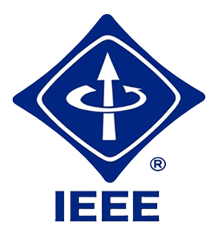
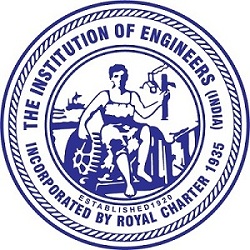
Events organised
Event Photos
Archieve
Activities
GREEN ENERGY CLUB
Objectives
• To educate student members about green energy technologies and their benefits.
• To provide hands-on experience through workshops and projects.
• To advocate for the adoption and advancement of sustainable energy solutions
ELECTRIC VEHICLE CLUB
Objectives
• To educate student members about electric vehicles and their advantages.
• To provide hands-on learning through practical workshops and projects.
• To encourage future engineers to promote sustainable transportation solutions.
Club Activities
Survey Forms
Question Bank – Academic Year 2025-26 (Odd Semester)
| YR/SEM | SUBJECT CODE | SUBJECT TITLE | LINKS |
| II Yr / III Sem | 23MA1303 | Transforms and Partial Differential Equations | |
| 23EE1301 | Electromagnetic Theory | ||
| 23EE1302 | Signals and Systems | ||
| 23EE1303 | Analog Electronics | ||
| 23CS1304 | Object Oriented Programming using Java | ||
| III Yr/ V Sem |
23EE1501 | Power System Analysis | |
| 23EE1502 | Electrical Machines II | ||
| 23EE1503 | Power Electronics | ||
| 23EE1504 | MicroController and Embedded System | ||
| 23EC1011 | IoT Concepts and Applications | ||
| 23EE1930 | PLC Programming | ||
| 23EE1923 | Electric Vehicle Architecture | ||
| IV Yr/ VII Sem |
21EE1701 | Protection and Switchgear | |
| 21EE1702 | Renewable Energy Systems | ||
| 21EE1703 | High Voltage Engineering | ||
| 21EE1905 | Power Quality | ||
| 21EE1919 | Smart System Automation | ||
| 21EE1927 | Testing of Electric Vehicles |

EEE Department Library Details
| Item | Details |
| Area | 44 Sq.m. |
| No. of Volumes | 1631 |
| No. of Titles | 487 |
| No. of Total Technical Journals(Scopus-National) | 18 (Access to Central Library-I) |
| No. of Reprint(Internationals Journals) | 07 (Access to Central Library-I) |
| No.of Computers | 01 |
| No. of E-Journals | 05(IEEE-ASPP/IEEE-POP/ELSIVIER-SCOPUS/ DELNET/EBSCOHOST |
| No.of E-Books | 01 (MGH) |

E-Resources(E-journals / E-Books)
Click Here

Remote Access Resources
Click
Here

